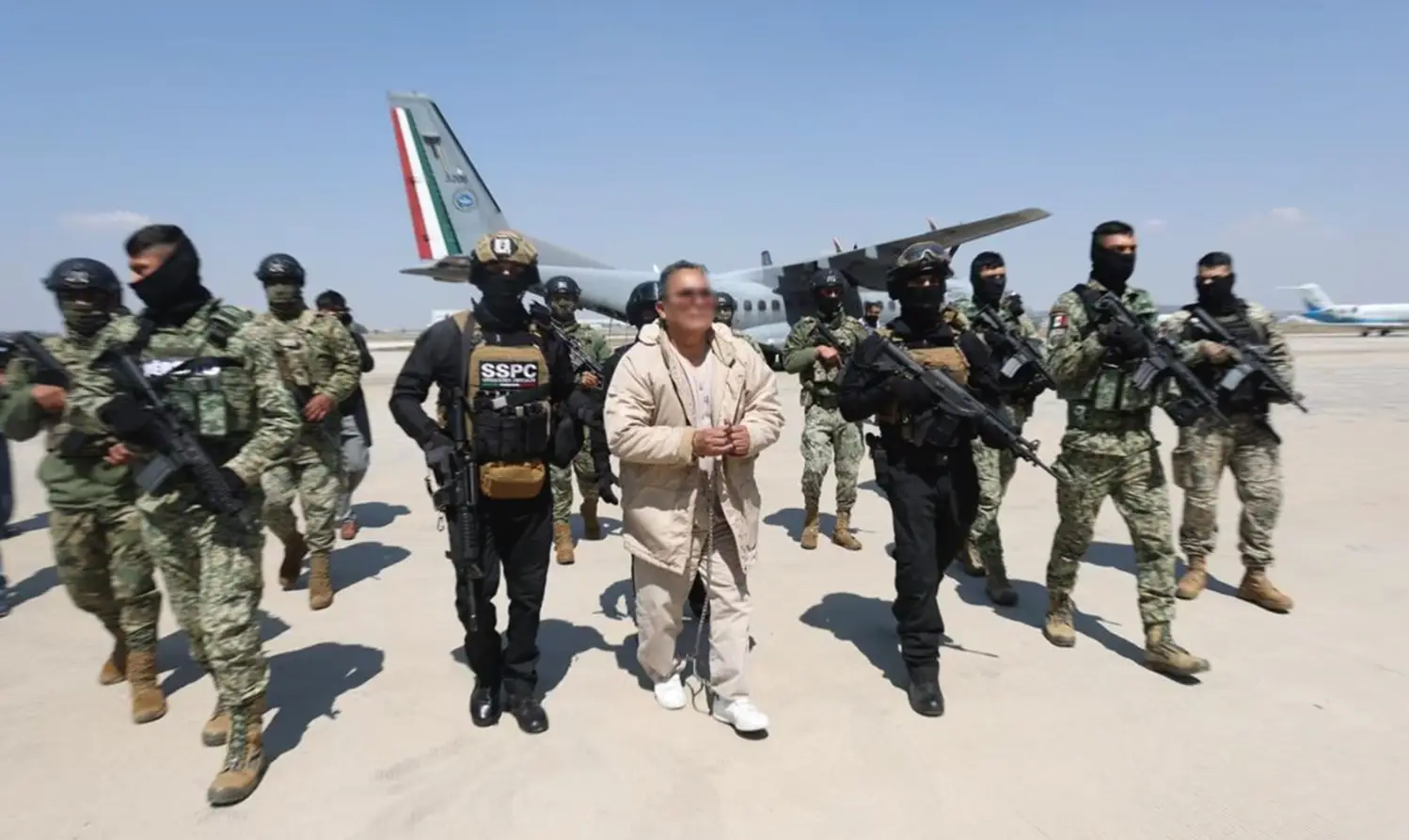The big news is not the 26 kingpins extradited this August to the United States to stand trial for crimes committed in Mexico and against the societies of both countries; nor that in February the first 29 capos were extradited, leaving us with the image of Rafael Caro Quintero downcast and incredulous after having evaded U.S. prison for decades (now, it is said, anxiously awaiting the death penalty for the murder of DEA agent Enrique “Kiki” Camarena).
No, the real news lies in what the official narrative omits when sending these 55 carefully selected individuals handed over to U.S. authorities. Among them, not a single person from the political sphere that enabled them to operate with absolute freedom across the country, leaving a trail of fear and death. Is that complicity a myth, an urban legend, a journalistic invention?
Luis Astorga’s solid academic research on the ties between politics and organized crime during the 20th century is there, as well as the work of investigative journalism, which has documented the names behind the cartels that continue operating despite losses, arrests, and extraditions.
Some names have surfaced in the press due to the pressure exerted by Donald Trump and his envoys to hand over certain active government figures. However, only the operational arm of organized crime is extradited.
The question many observers ask is: how long can Mexico’s President Claudia Sheinbaum continue without handing over some of them—or, more pointedly, in exchange for what will she avoid handing over alleged narcopoliticians named by U.S. security agencies?
Sheinbaum speaks daily of safeguarding sovereignty and insists, vehemently, that it is non-negotiable. Yet what we see is the opposite: sovereignty is ceded in migration when public resources are used to contain the flow northward; it is ceded in trade when concessions harm Mexican producers; and it is certainly ceded in security when extradited criminals are sent to U.S. justice instead of being tried for crimes committed in national territory.
Does the argument still hold that the Judiciary is “rotten” and to blame for criminals who committed the worst crimes against society walking free after some time behind bars, when we are about to inaugurate a new judicial system with judges, magistrates, and justices “democratically elected by the Mexican people,” supposedly preventing that perverse dynamic from recurring?
Or is Kristi Noem’s pressure—just to name one of the envoys who have arrived at the National Palace—so overwhelming that it cannot be resisted?
Indeed, politics always involves choosing between inconvenient options to privilege the greater good of a country. But does that greater good have a name and surname? Is that what is at stake when, in this new batch of extraditions, no alleged narcopolitician was included? Is there a bargain in place to protect the political power structure?
And if such a bargain exists, it is clear that Mexico’s president has already been measured, and the Trump administration knows exactly where to press to keep extracting benefits. So, Sheinbaum’s claim of making decisions with a “cool head” is just another piece of propaganda, immediately echoed and applauded by the officialist commentariat.
We are witnessing a constant surrender of sovereignty. Of course, it is no longer like in Antonio López de Santa Anna’s time, when half the national territory was handed to the United States, but something subtler through agreements on migration, trade, and national security. All this under the guise of sovereignist rhetoric, while decisions are made pragmatically to protect the interests of both the visible and invisible ruling elite.
So, when I see images of the extradited, once distinguished by their arrogance and the swagger of knowing themselves powerful and protected by their white-collar bosses, I imagine the grief and helplessness they must feel, stripped of everything or nearly everything, with some carrying their belongings in a plastic bag. Surely, they harbor feelings of betrayal, just as those extradited in February did, sacrificed while others continue enjoying impunity.
They must feel the pressure of heading into the unknown, though clinging to the hope of being acquitted—as has happened with equal or greater capos who are now protected witnesses. These, without a doubt, will talk, and talk a lot, about narcopolitics in Mexico.
And that will mean greater pressure on President Sheinbaum, who will have less and less room to protect her allies. I suspect she will end up handing over at least some of them as a political move to consolidate her power, now overshadowed by Trump’s declaration that Mexico “does what the United States asks.”
The Trump administration’s timetable is clearly set in the bilateral agenda. So far, they have met their goals—and are aiming for more. In some issues they will maintain appearances; in others, they will make unilateral decisions, burying the old slogan that “Mexico is to be respected.”
Unlike Sheinbaum, who loses sleep under this pressure, leaders such as Vladimir Putin, Emmanuel Macron, or even Lula da Silva have more room to maneuver, which allows them to resist U.S. pressure, buy time, and negotiate under better conditions.
Otherwise, let Sheinbaum answer: what has Mexico gained in these months of stormy relations? And please, don’t say time.
*Machine translation, proofread by Ricardo Aceves.












